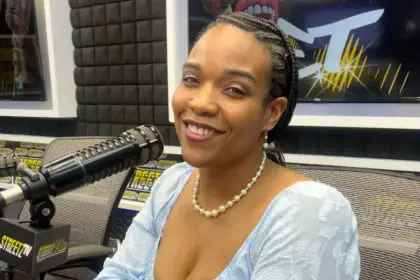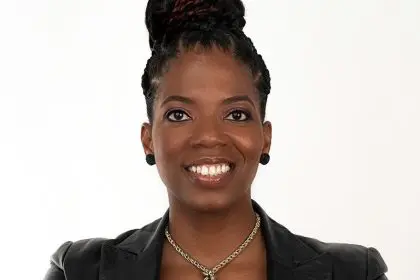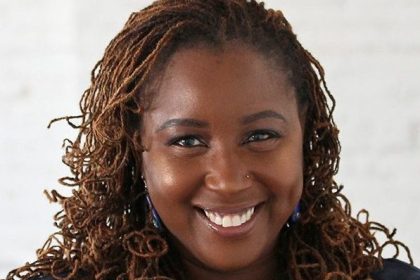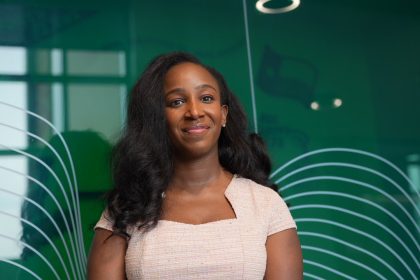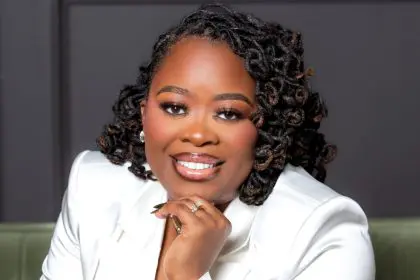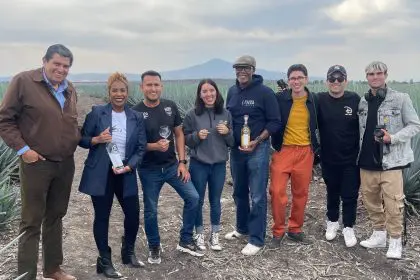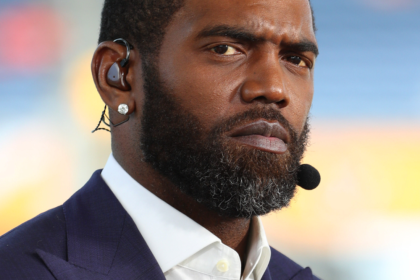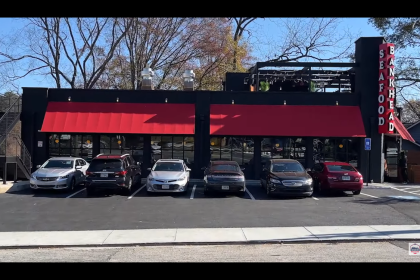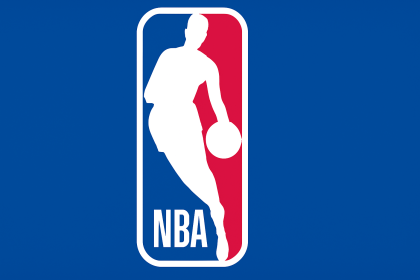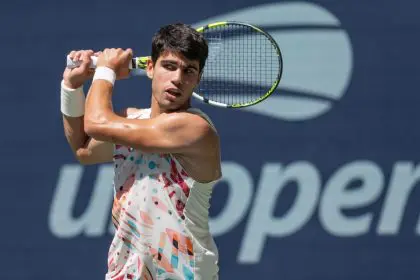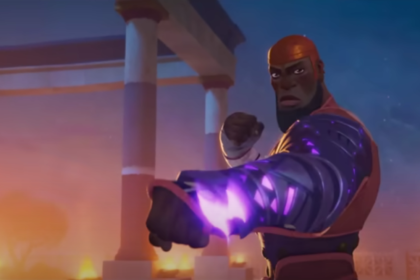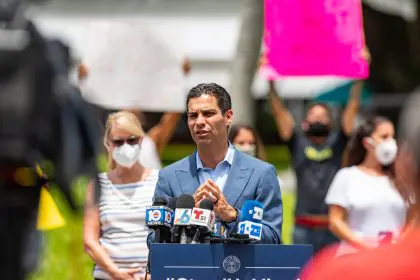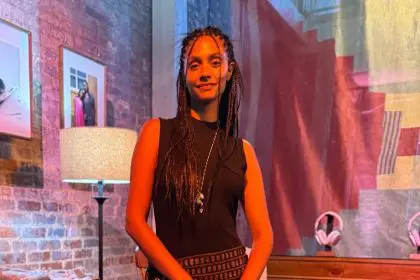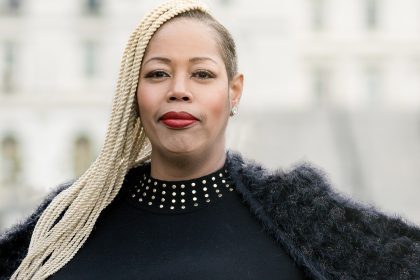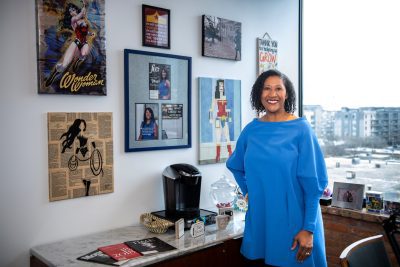Inside Georgia Tech’s Ivan Allen College, where southern gentility meets raw academic ambition, Dr. Joycelyn Wilson holds court with the easy confidence of someone who’s mastered the delicate art of being both scholar and cultural provocateur. Her office, a carefully curated chaos of vintage hip-hop ephemera and cutting-edge tech, serves as command central for what might be academia’s most fascinating experiment: the marriage of trap music and binary code.
Wilson’s trajectory reads like a Netflix pitch, mathematician goes rogue, trades algorithms for anthropology, and ends up catching the attention of everyone from Harvard’s old guard to Netflix’s “Hip Hop Evolution” producers. Her commentary on shows like STARZ’s “Blowin’ Money Fast” has made her that rarest of academic specimens – someone who can drop references to both Foucault and Future without breaking a sweat.
But it’s her upcoming book that has the academic world buzzing, a tome that promises to do for Southern hip-hop what Margaret Mead did for coming of age in Samoa. In a world where most scholars choose between the ivory tower and the streets, Wilson has somehow managed to claim both territories. Her research appears in dusty academic journals and slick media features alike, each piece a carefully calibrated mix of scholarly insight and cultural swagger. One minute she’s parsing data sets, the next she’s breaking down the technological implications of trap music’s rise with the kind of clarity that makes both computer scientists and casual fans lean in.
As spring 2026 approaches, bringing with it her University of Georgia Press manifesto, Wilson seems poised for that rarest of academic achievements: making the theoretical not just practical, but prophetic. In her hands, hip-hop isn’t just music or culture – it’s the source code for education’s next evolution.
When did you first fall in love with hip-hop, and what would you define as your most unique gift in your work?
I’m fortunate enough to grow up and remember hearing Rapper’s Delight on the radio. I would hear it going to WTUG in Tuscaloosa, Alabama. A neighbor would take my sister and me to school every morning, and it would come on in on the way to school. That would come on, and I think it was Queen’s Another One Bites the Dust.
Those two would come on in this morning show rotation on our way to school. And so when I first heard Rapper’s Delight, it was on the radio. So I’m fortunate enough to be a part of when Sylvia Robinson took it to the world, got those three guys on the album and started marketing rap music. I think I fell in love with it then, because I was one of those kids that learned the verses. The song is seven, eight minutes long, probably longer.
How did this early exposure to hip-hop influence your professional journey?
That’s an interesting question to ask, because I don’t really know what my superpower is in that sense. Because none of what has happened was planned. I didn’t hear Rapper’s Delight and say, “Oh, I want to be a hip hop Professor.” Maybe it was the courage to and the vision to see that at some point it was going to be a field of research, and that took a whole host of other things happening in my life for me to have to realize that. And so, I think my superpower would probably be courage and vision and having the courage to actually execute it.
I’ve been doing this work in some form professionally since… If I’m counting my very first publication as a journalist, hip hop journalist, and writing about rap music and Southern hip hop in ’97, ’98 is when I believe I published my first review.
It was a wrap with Rap Pages. It was a review of the So-So Def Bass All Stars Volume 3 that Jermaine Dupree and Lil Jon put out, and I reviewed it for Rap Pages magazine, and I had moved from Atlanta to Los Angeles, and I think that was having the courage to step out and put my thoughts out there about this music that I’ve been listening to since I was on my way to school in the morning and put my thoughts out there about it. I think, having the courage to do it. That may be the superpower.
Your career uniquely combines hip-hop, education, and technology. What ignited this path, and how has it evolved since your first article?
This is going back to not really being able to identify, because it wasn’t listening to Rapper’s Delight and then saying, I want to be a hip hop Professor.
There were a host of things just happening right, and one of them was moving from Tuscaloosa to Atlanta in ’81, officially moving here and summers, Christmas visits, all of that now become permanent and going to school in an all black school district neighborhood community just being around people who look like me, who were doing life, and moving here to experience that plays a role in having teachers that were using hip hop in the classroom, but it wasn’t called it.
It was just good teaching and cool teachers, and going to a high school where everybody’s black. Black teachers, black curriculum. There’s everything. Culture is sprinkled through it all, and so growing up around and being socialized in that way, also contributes to being able to recognize when I saw it as a teacher.
I started teaching high school mathematics in 1997, right after I graduated from college, and I saw the way my students were coming to class. Being a first year teacher and reflecting on what I believe were the good parts of what I experienced as a student at Mays from my teachers. I started to emulate that and remix it in my own way, and they would use rap music and culture and pop culture in our class when we had talent shows at school.
It was built into the curriculum and the extracurricular activities that we would have. And so, I think I started to rely on that. And at the same time I read a book called called Black Noise by Tricia Rose. She was the first to write a dissertation on rap music.
How did your academic journey in hip-hop studies develop?
I wrote an article for the Source Magazine and I want to say this is probably came out 2001 and it covered a teacher that was in Flint, Michigan, who was using hip hop to teach 8th grade math. We were a small network of people who were actually inside the classrooms and really building the field very early on.
25 years later, kind of reflecting on, we’re not just hip hop studies is but where hip hop studies and its intersection with education actually lies. I built a career around it and knew that I was going to need a PhD to even have the research to substantiate the evidence and the findings. Got in very early and now it’s it’s 2, 3 decades in.
How do you view hip-hop’s impact on technology and culture today?
Hip hop is a technology. It remixes anything that it touches and that’s what my book is about. And that’s what my research is like. Whether that’s a person, a platform, a product we’re talking about, Kendrick. Hip hop got sprinkled over the Super Bowl and now it’s the most watched thing on television ever.
I watched it again in class with my students yesterday. I teach a hip-hop history class at Georgia Tech, and we’re looking at Kendrick Lamar right now. It was cool to to engage in some critique with them, and some conversations with them. It design remixes anything that it touches. And that’s me talking about kind of leaning into some of the research that’s in my book.
Your book is scheduled for release in spring 2026. What can readers anticipate?
It’s a bit of a methodological memoir, if you want to kind of frame it in your head that way with research on some of what I just talked to you about placing myself within as a subject of my research in my way of describing how these methods and pedagogies have been built to build this field, and now it traverses K through 12 and higher Ed. It’s very much about my upbringing, my schooling, and how it in my schooling formal schooling, but also my schooling through hip hop how that informs the building and design of these methods that we’re using to build the research. That’s essentially what the what the book is about.
I didn’t have a lot of models. I leaned in on what my teachers were doing. My background is in mathematics, and so I was part of a math and science academy.
So the ways in which they were integrating music and culture into teaching just even the sciences. I’m a product of that. So talking about how that informs the design of curriculum and how it’s informed not only my educational programming that I’ve been involved with, and the data we’ve gotten around that, but also how and what informed the development of those methods. That is what my book is about.
What’s your analysis of Kendrick Lamar’s Super Bowl performance and his critique of Drake, particularly regarding Atlanta artists?
In terms of the performance, I was not surprised that Kendrick told a story in 13 minutes. All of his productions are done in 3 acts essentially, and he is known for integrating interludes or film audio, or some sort of visual to transition from one part of the story to the next part of the story, and Samuel Jackson played that role as Uncle Sam to take us through an act of him performing how he’s moved through the game. The game of life, the game of hip hop, the game of living in an American society, and to use a set design of a PlayStation Controller was just very much in the vein of Lamarian creativity.
I saw him as Mr. Morale in London in 2022, and that concert is produced the same way. You can actually watch it on Amazon Prime, if you like watching concert documentaries.
The overwhelming response was positive. Because and I think that’s a reflection of just the moment that we’re in. Hip hop is working. This was what it was designed to do. So, at the end of the day, like he tells us at the very beginning. The revolution is about to be televised right time, wrong dude. The NFL signed off on that. The question is, why did they?
Can you elaborate on Kendrick’s critique of Drake regarding Atlanta artists in “Like That”?
History lesson. He didn’t do that verse for the Super Bowl, and I thought he might. But I’m not surprised that he didn’t. I mean 13 minutes but I think, he is not to educating his listener. I don’t know if it’s as much about Drake as using Drake as a teachable moment.
Why is hip-hop particularly significant during times of social change, especially in our current national climate?
Well, I think music is, it’s in that sense, it’s bigger than hip hop music and culture and and the power of music has the ability to just bring people together, has the ability to open folks minds, but it also has the ability to close folks hearts. That’s why we have to be really, really careful with what we’re putting out.
Just because music is precious, and It is self-care. And so, I think it’s music. Once you begin to sprinkle culture and African American music and traditions that are rooted in that type of expression like from day one. Music has always been a part of the education and the schooling and the socialization of a human being. It’s really important to society, because it’s part of our self care. I really don’t know how else to describe it.
What music do you turn to during challenging times?
I listen to a lot of stuff, and it’s not even when I’m feeling down, or I just love music. So if I’m down at that time when I happen to be listening to music, it, of course, is gonna lift me up. But I and one of those folks that get off the phone in the car because I want to listen to my music right?
I like rock. I like classic rock. I like country. I like classic country. I like jazz. I think everything that sounds good like it is a frequency, and I love it, and I happen to enjoy the frequency of hip hop right at the frequency of hip hop, because it builds and samples all of that jazz and rock and soul. And just it has the ability to just pull from it all and create a different experience.
How can our audience connect with you and support your work?
I am building a page called Style and Scholarship on Instagram. Please go there, follow me! That’s a public page. Just focusing on the book, if folks want to. My Instagram. I have not been posting on X or Twitter right now. Just kind of taking a break from what I believe that platform can do to folks.
So I’ve been focusing more on that Instagram area. So, following me on Style and Scholarship, that is my main page, I have a personal page. That’s @iamdrjoycelyn. And so that’s the main place where I have some some presence, and you can see my work and the things that I’ve done at drjoyce.net.

